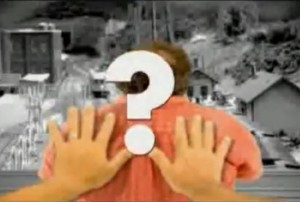Working with a team of researchers at the Moral Research Lab (MoRL), I recently published a paper about how the most popular experimental stimuli in moral psychology has some problems. (See abstract below; The Atlantic also wrote about it.)
Before we get started, here is some info about those stimuli, the trolley problem:
If you thought that any of that video was funny, you are not alone. One of the arguments that we make in our paper is that aspects of the trolley problem are amusing – and it is probably not a good idea to use amusing stimuli when you are studying what makes things wrong.
Shane Mauss, a comedian friend of mine, has a joke about the trolley problem. Whether or not you find his joke funny, his joke highlights how the trolley problem lends itself to comedy:
I apologize for laughing during the filming. I am a terrible person. But I hope you get the point.
———————————————————-
Sacrificial dilemmas, especially trolley problems, have rapidly become the most recognizable scientific exemplars of moral situations; they are now a familiar part of the psychological literature and are featured prominently in textbooks and the popular press. We are concerned that studies of sacrificial dilemmas may lack experimental, mundane, and psychological realism and therefore suffer from low external validity. Our apprehensions stem from three observations about trolley problems and other similar sacrificial dilemmas: (i) they are amusing rather than sobering, (ii) they are unrealistic and unrepresentative of the moral situations people encounter in the real world, and (iii) they do not elicit the same psychological processes as other moral situations. We believe it would be prudent to use more externally valid stimuli when testing descriptive theories that aim to provide comprehensive accounts of moral judgment and behavior.
